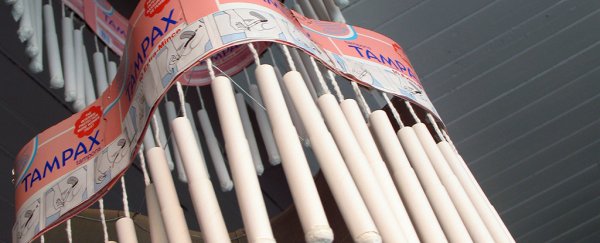File under success stories for equality and social outreach: the Sydney city council is considering a plan to hand out free tampons to women at different points in the city, including libraries, sports venues, and homeless shelters.
Not only do women make up a third of the homeless population in Australia, they earn substantially less on average, too, and there's a widespread feeling that authorities could be doing more to support women in the country.
"[The] city of Sydney is flush with cash and throws around money like there's no tomorrow," Sydney city councillor Edward Mandla told Libby-Jane Charleston at The Huffington Post. "There's money for everyone and lots of talk about equality. But there's little in practical leadership solutions."
"Providing free sanitary products is a low-cost solution that ought to inspire corporations around Australia to follow suit," he continued.
The sanitary items, which cost AU$5-6 per pack, will also be freely available at all public bathrooms for council staff if the proposal backed by Mandla gets passed, and many are hopeful it will.
"Providing staff with sanitary items will cost each employee about AU$7 per year," Mandla told Jerico Mandybur at Mashable. "For a city that is prepared to spend AU$10 million on public art, it's not a crazy amount of money."
Of course, a man can walk into any bathroom and get all the essential supplies he needs, from toilet paper to soap. For women, there's something crucial missing.
While Sydney would be the first place in Australia to dish out free tampons to its citizens, New York has already introduced a similar scheme when earlier this year NYC council member Julissa Ferreras-Copeland described tampons as "as necessary as toilet paper" ahead of a ruling on the issue.
After a vote that went through 49 to 0, they're now freely available at homeless shelters, prisons, and public schools, free of charge, so let's hope the proposal in Sydney passes by a similar margin.
In many parts of the world, including Australia and the US, tampons are taxed as non-essential or luxury products, which seems strange way to describe something that deals with a natural and unavoidable biological process. Such a tax is about to be scrapped in the UK.
There are promising signs that periods (a natural part of a woman's life, after all) are no longer the taboo subject they used to be.
We're also learning more about the science of periods: in recent months researchers have linked period pain to an inflammation biomarker and finally discovered the cause of heavy periods – topics that scientists have long overlooked.
We even know what happens to the menstruation process in space. And if astronauts can get access to tampons, so should the most vulnerable women in our communities.
